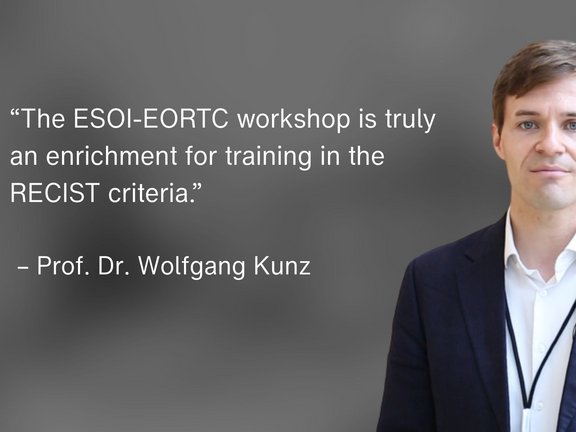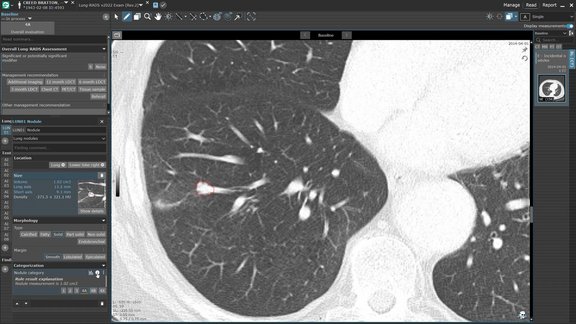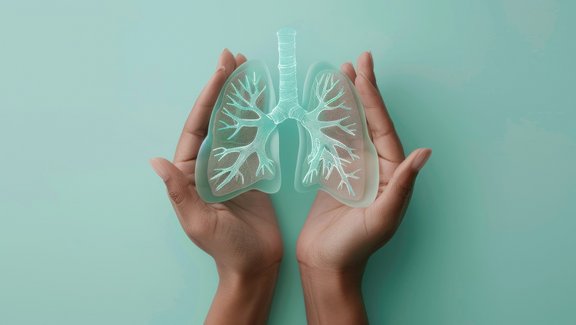The annual ESOI-EORTC workshop, organized by the European Society of Oncological Imaging (ESOI) and the European Organization for Research and Treatment of Cancer (EORTC), offers hands-on training for practicing radiologists and radiology residents, focusing on tumor response assessment.
The workshop focuses on applying imaging guidelines, structured oncological reporting, and analyzing real-life cancer cases. Mint Medical supports the event with modern workstations equipped with the latest version of mint Lesion software. These workstations provide participants with an interactive learning environment, enabling them to gain valuable hands-on experience and the opportunity to earn a RECIST certification.
Shortly after the workshop, we had the opportunity to speak with Prof. Dr. Wolfgang Kunz, Senior Physician at LMU Munich, where he specializes in oncological imaging and heads the Center for Collaborative Studies. He is also actively involved in several European professional societies, including ESOI and EORTC.
In this interview, Prof. Kunz shares his insights and highlights from the ESOI-EORTC Workshop 2025, offering valuable perspectives on the significance of such events in advancing radiological expertise.
Learn more about how this workshop can help you refine your skills in tumor assessment, or watch the full video interview on YouTube.
What impression did you gain from this year’s ESOI-EORTC workshop?
The ESOI-EORTC Workshop is truly an enrichment for training in the RECIST criteria. It provides an opportunity to review hands-on cases and discuss them with the participants. Many questions arise in the practical application of the RECIST criteria, which may initially seem simple to understand, but the interaction with the participants, which is given plenty of room during the workshop, is crucial.
How important are such workshops for the correct interpretation and application of assessment criteria, and what benefits do you see for the participants?
The ESOI-EORTC workshop focuses on different areas, addressing the RECIST criteria as well as modified criteria. It goes into detail, for example, in assessing HCC tumors, GIST tumors, lymphomas, and also new therapeutic pillars such as immunotherapy. There's a lot of room for questions with the participants, and ultimately, there is a final exam that the participants explicitly prepare for.
Were your expectations for this year’s ESOI-EORTC Workshop met?
This year's workshop was a great success. We are now in the tenth edition, and we look back on many years of support from Mint Medical. The uniqueness of the workshop wouldn't be possible without the availability of a workstation where participants can directly work on the cases. Feedback from the participants has shown that this was considered the highlight of the entire workshop. Particularly, the opportunity to engage with experts in various fields and address all questions, even those concerning details that might not be fully understood during the first reading of the RECIST papers, was highly appreciated. Overall, it was a very successful event.



